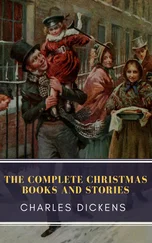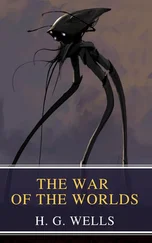[Enter] Mistress Page, Robin.
Mrs. Page. Nay, keep your way, little gallant; you were wont to be a follower, but now you are a leader. Whether had you rather lead mine eyes, or eye your master’s heels?
Rob. I had rather, forsooth, go before you like a man than follow him like a dwarf.
Mrs. Page. O, you are a flattering boy, now I see you’ll be a courtier.
[Enter] Ford.
Ford. Well met, Mistress Page. Whither go you?
Mrs. Page. Truly, sir, to see your wife. Is she at home?
Ford. Ay, and as idle as she may hang together, for want of company. I think if your husbands were dead, you two would marry.
Mrs. Page. Be sure of that—two other husbands.
Ford. Where had you this pretty weathercock?
Mrs. Page. I cannot tell what the dickens his name is my husband had him of. What do you call your knight’s name, sirrah?
Rob. Sir John Falstaff.
Ford. Sir John Falstaff!
Mrs. Page. He, he—I can never hit on ’s name. There is such a league between my goodman and he! Is your wife at home indeed?
Ford. Indeed she is.
Mrs. Page. By your leave, sir. I am sick till I see her.
[Exeunt Mrs. Page and Robin.]
Ford. Has Page any brains? Hath he any eyes? Hath he any thinking? Sure they sleep, he hath no use of them. Why, this boy will carry a letter twenty mile, as easy as a cannon will shoot point-blank twelve score. He pieces out his wive’s inclination; he gives her folly motion and advantage; and now she’s going to my wife, and Falstaff’s boy with her. A man may hear this show’r sing in the wind. And Falstaff’s boy with her! Good plots, they are laid, and our revolted wives share damnation together. Well, I will take him, then torture my wife, pluck the borrow’d veil of modesty from the so-seeming Mistress Page, divulge Page himself for a secure and willful Actaeon; and to these violent proceedings all my neighbors shall cry aim. [Clock heard.] The clock gives me my cue, and my assurance bids me search—there I shall find Falstaff. I shall be rather prais’d for this than mock’d; for it is as positive as the earth is firm that Falstaff is there. I will go.
[Enter] Page, Shallow, Slender, Host, Evans, Caius, [Rugby].
Shal., Page, Etc. Well met, Master Ford.
Ford. Trust me, a good knot. I have good cheer at home, and I pray you all go with me.
Shal. I must excuse myself, Master Ford.
Slen. And so must I, sir. We have appointed to dine with Mistress Anne, and I would not break with her for more money than I’ll speak of.
Shal. We have linger’d about a match between Anne Page and my cousin Slender, and this day we shall have our answer.
Slen. I hope I have your good will, father Page.
Page. You have, Master Slender, I stand wholly for you; but my wife, Master Doctor, is for you altogether.
Caius. Ay, be-gar, and de maid is love-a me. My nursh-a Quickly tell me so mush.
Host. What say you to young Master Fenton? He capers, he dances, he has eyes of youth; he writes verses, he speaks holiday, he smells April and May—he will carry’t, he will carry’t—’tis in his buttons—he will carry’t.
Page. Not by my consent, I promise you. The gentleman is of no having. He kept company with the wild Prince and Poins; he is of too high a region, he knows too much. No, he shall not knit a knot in his fortunes with the finger of my substance. If he take her, let him take her simply. The wealth I have waits on my consent, and my consent goes not that way.
Ford. I beseech you heartily, some of you go home with me to dinner. Besides your cheer, you shall have sport; I will show you a monster. Master Doctor, you shall go, so shall you, Master Page, and you, Sir Hugh.
Shal. Well, fare you well. We shall have the freer wooing at Master Page’s.
[Exeunt Shallow and Slender.]
Caius. Go home, John Rugby, I come anon.
[Exit Rugby.]
Host. Farewell, my hearts. I will to my honest knight Falstaff, and drink canary with him.
[Exit.]
Ford [Aside.] I think I shall drink in pipe-wine first with him; I’ll make him dance.—Will you go, gentles?
All. Have with you to see this monster.
Exeunt.
¶
Enter Mistress Ford, Mistress Page.
Mrs. Ford. What, John! What, Robert!
Mrs. Page. Quickly, quickly! Is the buck-basket—
Mrs. Ford. I warrant. What, Robin, I say!
[Enter] Servants [with a great buck-basket].
Mrs. Page. Come, come, come.
Mrs. Ford. Here, set it down.
Mrs. Page. Give your men the charge, we must be brief.
Mrs. Ford. Marry, as I told you before, John and Robert, be ready here hard by in the brew-house, and when I suddenly call you, come forth, and (without any pause or staggering) take this basket on your shoulders. That done, trudge with it in all haste, and carry it among the whitsters in Datchet- mead, and there empty it in the muddy ditch close by the Thames side.
Mrs. Page. You will do it?
Mrs. Ford. I ha’ told them over and over, they lack no direction. Be gone, and come when you are call’d.
[Exeunt Servants.]
Mrs. Page. Here comes little Robin.
[Enter] Robin.
Mrs. Ford. How now, my eyas-musket, what news with you?
Rob. My master, Sir John, is come in at your back door, Mistress Ford, and requests your company.
Mrs. Page. You little Jack-a-Lent, have you been true to us?
Rob. Ay, I’ll be sworn. My master knows not of your being here, and hath threat’ned to put me into everlasting liberty if I tell you of it; for he swears he’ll turn me away.
Mrs. Page. Thou’rt a good boy. This secrecy of thine shall be a tailor to thee, and shall make thee a new doublet and hose. I’ll go hide me.
Mrs. Ford. Do so. Go tell thy master I am alone. [Exit Robin.] Mistress Page, remember you your cue.
Mrs. Page. I warrant thee, if I do not act it, hiss me.
[Exit.]
Mrs. Ford. Go to then. We’ll use this unwholesome humidity, this gross wat’ry pumpion. We’ll teach him to know turtles from jays.
[Enter] Falstaff.
Fal. “Have I caught thee, my heavenly jewel?” Why, now let me die, for I have liv’d long enough. This is the period of my ambition. O this blessed hour!
Mrs. Ford. O sweet Sir John!
Fal. Mistress Ford, I cannot cog, I cannot prate, Mistress Ford. Now shall I sin in my wish: I would thy husband were dead. I’ll speak it before the best lord, I would make thee my lady.
Mrs. Ford. I your lady, Sir John? Alas, I should be a pitiful lady!
Fal. Let the court of France show me such another. I see how thine eye would emulate the diamond. Thou hast the right arch’d beauty of the brow that becomes the ship-tire, the tire-valiant, or any tire of Venetian admittance.
Mrs. Ford. A plain kerchief, Sir John. My brows become nothing else, nor that well neither.
Fal. [By the Lord,] thou art a tyrant to say so. Thou wouldst make an absolute courtier, and the firm fixture of thy foot would give an excellent motion to thy gait in a semicircled farthingale. I see what thou wert, if Fortune thy foe were not, Nature thy friend. Come, thou canst not hide it.
Mrs. Ford. Believe me, there’s no such thing in me.
Читать дальше












![Уильям Шекспир - The Works of William Shakespeare [Cambridge Edition] [Vol. 1 of 9]](/books/746589/uilyam-shekspir-the-works-of-william-shakespeare-c-thumb.webp)